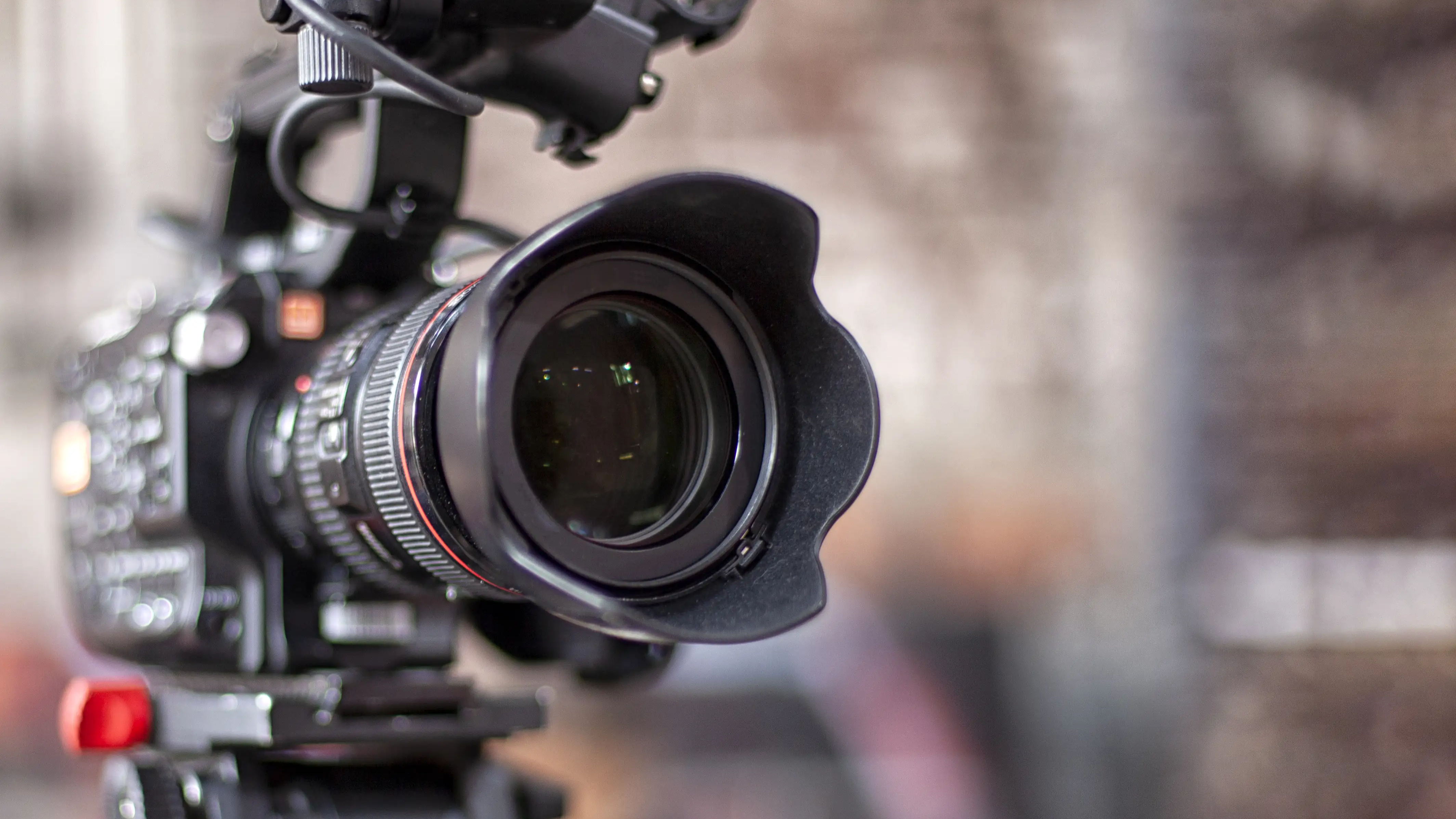The Significance of Legal Video Depositions in Modern Legal Solutions: What You Ought to Know
Legal video depositions have actually come to be necessary in today's legal landscape. They give a multidimensional view of witness testaments that conventional records merely can not match. By capturing both non-verbal and verbal interaction, these depositions improve the general understanding of a witness's trustworthiness. Nonetheless, the performance of video clip depositions pivots on numerous variables, consisting of compliance with lawful requirements and finest practices (legal video depositions). Checking out these elements reveals their real importance in modern lawful solutions
What Are Lawful Video Clip Depositions?
Legal video clip depositions function as a crucial device in the litigation procedure. They entail recording witness testaments in a video clip format, catching both spoken and non-verbal interaction. This technique enables attorneys to record the disposition, expressions, and reactions of witnesses, supplying a richer context for the testimony. Usually conducted in a controlled environment, these depositions are led by attorneys who ask inquiries while a stenotype reporter documents the discussion. The resulting video clip can be essential for test prep work, as it allows legal representatives to evaluate the credibility of witnesses and fine-tune their approaches. In addition, legal video depositions can be made use of in numerous lawful contexts, varying from civil disagreements to criminal cases. The auditory and visual elements of video clip depositions boost the presentation of proof, making it an essential element in the contemporary lawful landscape. In general, they add significantly to the performance and effectiveness of legal process.

Benefits of Video Clip Depositions Over Conventional Methods
Video clip depositions provide various benefits contrasted to typical methods of taking witness testaments. One substantial advantage is the ability to catch both visual and audio components, providing an extra complete document of the witness's declarations. This double style enhances clearness and enables legal experts to reference specific nuances throughout trial preparation. Additionally, video clip depositions assist in remote involvement, making it much easier for witnesses who may be unavailable for in-person appearances as a result of geographical restraints or wellness issues.Moreover, video depositions can quicken the general deposition procedure, minimizing the moment and expenses connected with traveling and logistics. They additionally boost accessibility, as tape-recorded depositions can be quickly shared among legal groups and referenced any time. This ease adds to far better case management and preparation. On the whole, video depositions stand for a modern-day, effective technique to collecting witness testaments, straightening with the progressing requirements of the lawful profession.
The Role of Body Movement and Tone in Testimonies

In legal video depositions, body language and tone play essential functions in conveying a witness's reliability and trustworthiness. Nonverbal hints can give insights right into a witness's emotion, affecting exactly how their testimony is perceived. Understanding the effect of these elements is necessary for jurors and lawyers alike when assessing the integrity of a statement.
Nonverbal Interaction Insights
While verbal interaction is frequently emphasized in legal testimonies, nonverbal signs such as body movement and tone play a necessary function in conveying reliability and emotion. Observers of depositions may note that a witness's position, motions, and facial expressions can greatly affect understandings of dependability. Regular eye contact may signal self-confidence, while preventing look could recommend deceit or discomfort. The tone of voice-- its pitch, volume, and rate-- can give sensations of genuineness or unpredictability. Lawyers should be in harmony with these nonverbal signals, as they often give crucial context that matches spoken words. Recognizing these subtleties can boost the efficiency of depositions and affect the outcome of legal proceedings.
Emotional Tone Effect
The psychological tone conveyed during lawful testimonies substantially influences just how a witness is regarded. Body movement, vocal inflections, and faces play crucial roles fit the narrative of a statement. A witness exhibiting confidence through steady eye get in touch with and a calm tone can instill a feeling of dependability and involvement. Alternatively, signs of anxiety, such as fidgeting or an unsteady voice, might bring about hesitation concerning their account. The subtleties of emotional expression can affect the analysis of truths, making it essential for lawyers to acknowledge these cues. In video depositions, the auditory and aesthetic parts combine, emphasizing the relevance of psychological tone in conveying sincerity and reliability within the lawful process.
Credibility and Credibility
An essential consider developing reputation and trustworthiness throughout statements hinges on the witness's body movement and tone of voice. Observers often rely on non-verbal signs-- such as eye get in touch with, posture, and gestures-- to assess a witness's sincerity. A witness that preserves eye call and shows open body language may be viewed as more straightforward and trusted than one that avoids eye contact or shows up shut off. Furthermore, tone of voice plays an essential duty; a steady, tranquil tone can strengthen the credibility of the testament, while variations in pitch or volume may elevate questions. Ultimately, the combination of body movement and singing tone greatly influences how a witness's declarations are gotten and analyzed in a lawful context.
Ideal Practices for Conducting Video Clip Depositions
Carrying out video depositions needs careful preparation and implementation to guarantee a clear and efficient presentation of statement. It is crucial to select a quiet, well-lit location to minimize interruptions and safe optimal video clip quality. The devices should be checked beforehand, consisting of cams, microphones, and lighting, to stay clear of technological issues during the deposition.Next, events entailed have to assess the style and procedures beforehand, making sure that every person recognizes their roles. The deponent needs to be oriented on the process, including exactly how to respond clearly and concisely.Additionally, preserving a specialist behavior throughout the session is crucial. This consists of abstaining from speaking over each other and validating that all questions are guided suitably. It is vital to videotape the deposition in a layout that enables for easy playback and testimonial, preserving the honesty of the statement for future usage.
Lawful Factors To Consider and Compliance Issues
Exactly how do legal factors to consider and compliance problems influence the performance of video clip depositions? Attorneys must browse an intricate landscape of regulations, guaranteeing that video clip depositions comply with administrative policies and requirements. Conformity with regulations worrying privacy, permission, and recording approaches is important. Obtaining specific consent from all events involved is necessary to prevent legal repercussions.Additionally, the admissibility of video proof in court can pivot on compliance with step-by-step demands. Guaranteeing that the equipment used satisfies technical requirements is additionally crucial, as bad top quality can weaken the deposition's reliability.Moreover, lawyers have to know any kind of particular state regulations that govern video depositions, as these can differ substantially. Failure to attend to these considerations can not just threaten the stability of the deposition however also impact the general case strategy, eventually influencing the customer's lawful results.
Exactly How Video Clip Depositions Effect Court Assumption
While video depositions can work as effective devices in lawful proceedings, their impact on jury assumption is substantial. The acoustic and visual elements of video clip recordings provide jurors with a much more detailed understanding of witness temperament, credibility, and emotional actions. This multimedia strategy can boost the jurors' ability to assess the dependability of testimony contrasted to traditional text-based transcripts.Moreover, video clip depositions allow jurors to observe body movement, tone of voice, and faces, all of which can impact their analysis of the witness's statements. The presence of a witness on display can humanize them, promoting empathy and why not look here link, which may sway jurors' opinions. Conversely, a witness that shows up incredibly elusive or undependable on video may bring about adverse understandings that affect a jury's decision. Ultimately, the vibrant nature of video clip depositions plays a crucial duty fit how jurors translate proof and reach their decisions.
The Future of Video Depositions in Legal Method
As improvements in modern technology continue to reshape the legal landscape, the future of video clip depositions is poised for substantial development. Advancements such as synthetic intelligence, online truth, and improved video clip conferencing devices are anticipated to simplify the deposition procedure and enhance accessibility. Attorneys might use AI-driven analytics to evaluate witness trustworthiness and situation toughness more effectively.Moreover, the assimilation of virtual fact might enable juries to experience immersive simulations of depositions, supplying much deeper context and understanding. Furthermore, the fad towards remote depositions is most likely to continue, offering better versatility for clients and lawyers alike.As remote job becomes significantly stabilized, video clip depositions will likely come to be common practice, minimizing prices and time constraints related to conventional techniques. In general, these technological developments assure to boost the performance, effectiveness, and availability of video clip depositions in legal method, ultimately changing how attorneys prepare for test.
Regularly Asked Concerns
Just How Much Do Legal Video Clip Depositions Commonly Cost?

Can Video Clip Depositions Be Used in Any Type Of Sort Of Situation?
Video depositions can be utilized in various kinds of situations, consisting of civil, criminal, and family members regulation. Their adaptability enables lawyers to present why not look here witness testimonies efficiently, adjusting to the details needs of different lawful situations.
What Devices Is Needed for a Video Deposition?
To perform a video deposition, important devices consists of a high-grade camera, microphone, lighting, and a reliable recording device. Additionally, a computer system with editing software application might be required for post-production and formatting the last video.
For how long Does a Typical Video Deposition Last?
A regular video clip deposition lasts between 2 to 4 hours, depending on the intricacy of the situation and the number of inquiries presented. Extensive sessions might take place, yet breaks are usually integrated for participant comfort.

Are Video Depositions Admissible in Court?
Video clip depositions are typically admissible in court, given they adhere to lawful criteria and policies of evidence. Their usage enhances clarity and maintains witness testament, helping in the judicial process during tests and hearings. Lawful video depositions have become essential in today's lawful landscape. Additionally, lawful video depositions can be utilized in various lawful contexts, varying from civil disputes to criminal cases. Additionally, video depositions facilitate remote participation, making it easier for witnesses who may be inaccessible for in-person looks due to geographical constraints or health issues.Moreover, video clip depositions can quicken the overall deposition this hyperlink procedure, minimizing the time and costs associated with traveling and logistics. Guaranteeing that the equipment made use of satisfies technical requirements is additionally crucial, as poor high quality can undermine the deposition's reliability.Moreover, lawyers need to be mindful of any particular state legislations that regulate video depositions, as these can vary greatly. In addition, the fad toward remote depositions is most likely to linger, supplying greater adaptability for lawyers and customers alike.As remote work ends up being significantly normalized, video depositions will likely come to be conventional technique, reducing costs and time constraints associated with standard methods.